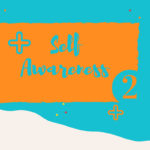Health Canada is rolling out an updated version of Canada’s Food Guide this Winter, which will mark the first update since 2007. The revision process is currently underway.
With the Food Guide originally aimed at tackling wartime rationing and malnutrition, it has an interesting history – with many updates and transformations that have taken place since its inception in 1942. The new plan is based on an updated set of guiding principles, focused on consuming more nutrition-dense foods on a regular basis and staying away from harmful fats, sodium and sugar. The guiding principles highlight the importance of knowledge and skills relating to health and nutrition, advising that Canadians shop for nutritious foods, plan and cook healthy meals and then share them with family and friends, which “can help reinforce positive eating habits and help children develop healthy attitudes towards food.”
The Guiding Principles also move the conversation beyond the individual to include the impact of healthy eating on our environment, encouraging us to look at the impact of our food systems (e.g., greenhouse gas emissions, water quality, food waste, animal welfare, soil degradation).
Learn More about Nutrition and Portion Size

Be Informed
Keep up to date on the revision of Canada’s food guide by registering for the Consultation and Stakeholder Information Management System. At the ‘areas of interest’ page, select ‘Canada’s Food Guide / Nutrition.’
Email nutrition@hc-sc.gc.ca to:
- request a PDF copy of the:
- guiding principles
- draft recommendations
- evidence base summary presented in the consultation
- ask any questions about the revision
Additional Resources
- Translated Versions of the Guide
- Use of Food Guide Content in Labelling and Advertising
- My Food Guide
- Eating Well with Canada’s Food Guide – A Resource for Educators and Communicators
- Copyright Guidelines for Non-Commercial and Commercial Reproduction of Canada’s Food Guide
- Eating Well with Canada’s Food Guide – First Nations, Inuit and Métis


 Cognitive learning is all about watching, listening touching and experiencing. Naturally, children are more likely to absorb things they see and hear around them. Learning techniques such as science activities and experiments are as popular as they are with children, because they really do work with how children learn.
Cognitive learning is all about watching, listening touching and experiencing. Naturally, children are more likely to absorb things they see and hear around them. Learning techniques such as science activities and experiments are as popular as they are with children, because they really do work with how children learn.



 Self-awareness
Self-awareness Immunity
Immunity Imagination
Imagination Knowledge
Knowledge Optimism
Optimism Resilience
Resilience